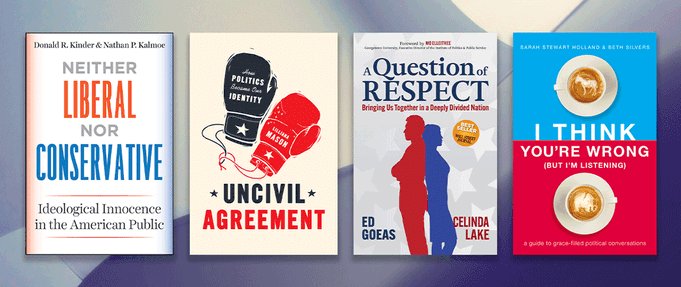We live in polarized times, and this can mean that political discussions often become heated, especially among family members.
Whether you’re gathering with family for the holidays or just having a chat with a neighbor, conversations can feel like minefields—and nobody wants to be surprised and caught off guard by an explosion in what was meant to be a casual conversation.
However, simply avoiding controversial topics no longer feels like an option in many cases—and we may not feel good about it, even if it is.
So, how do we have respectful, constructive discussions of political issues without resorting to angry words that we may regret later?
These 11 books are the perfect solution to help you navigate those uncomfortable conversations with grace, respect, and humility, while still holding onto your own integrity.
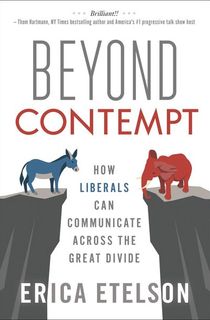
Beyond Contempt
How do we communicate respectfully with someone who disagrees with us vehemently without soft-pedaling our own beliefs?
That’s the question at the heart of Erica Etelson’s Beyond Contempt, which is designed to “teach you how to reach people’s minds and hearts without wounding them in ways that produce the opposite result you wanted” (Thom Hartmann, America’s #1 progressive talk show host), even when you find yourself ideologically opposed on almost every issue.
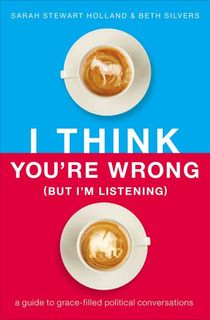
I Think You're Wrong (But I'm Listening)
Two working moms on opposite sides of the political spectrum, Sarah Stewart Holland and Beth Silvers, are also the co-hosts of the hit podcast Pantsuit Politics.
They bring the tricks they’ve learned to this book for everyone who wants to engage in constructive political conversations with grace and generosity.
“Not only do they offer balanced perspectives from each political ideology,” writes New York Times-bestselling author Jen Hatmaker, “but they teach us how to dialogue well, without sacrificing our humanity.”
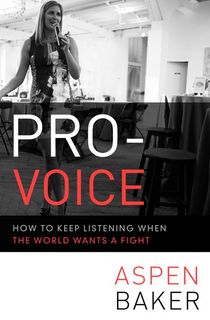
Pro-Voice
“Aspen Baker takes one of the most contentious issues of our age and pulls an unexpected magic trick,” raves Glynn Washington, creator and host of NPR’s Snap Judgment. “Instead of delivering up a call to arms, she opens up a safe place for empathy, caring, and transformation.”
At the age of 24, Aspen Baker had an abortion. Afterward, she found herself caught between the warring factions of pro-choice and pro-life advocates on what had become a political battlefield—a situation that prompted her to start Exhale, a “nonjudgemental post-abortion talkline” (Publishers Weekly).
Now, she brings those same lessons towards compassionate dialogue around all sorts of contentious issues in this one-of-a-kind book.

Beyond the Echo Chamber
It often feels like certain media titans, such as Fox News, dominate the political landscape, even for those who are not aligned with their views.
However, progressive media outlets have found considerable success in changing narratives and reshaping politics, as outlined in this “must-read for media practitioners, consumers, and progressives of all stripes” (Chris Hayes, host of All in with Chris Hayes).
This book provides a practical strategy guide for how to go beyond the echo chamber and reach people with whom you disagree.
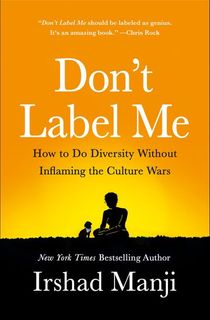
Don't Label Me
“Don’t Label Me should be labeled as genius,” raves Chris Rock. “It’s an amazing book!” In an increasingly diverse world, identity politics have often served to obscure not only our own individuality, but also the many things we have in common.
Fortunately, New York Times-bestselling author and Oprah “Chutzpah” award-winner Irshad Manji and her dog Lily are here to cut through all that, in a book loaded with insights and specific anecdotes about how to come to terms with the “other,” no matter who you are.
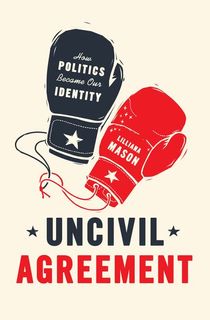
Uncivil Agreement
These days, more and more Americans self-identify as Republicans or Democrats—and view the “other side” with suspicion or even contempt.
Backed by “the kind of research that will change not just how you think about the world but how you think about yourself” (Ezra Klein, Vox), Lillian Mason looks at the psychological, cultural, political, and sociological causes behind this growing polarization.
Ultimately, she examines what this segmentation means for contemporary politics, and how we can find a way forward when we’re so divided.
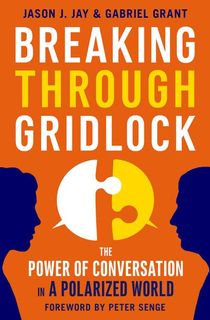
Breaking Through Gridlock
What leads to gridlock in a conversation? Our gut reaction might be to attribute our disagreements themselves, or perhaps the polarization and divisive language that has been increasingly deployed in recent years.
But in this “field manual for change agents on how to build bridges across differences and move from talk to action” (Adam Grant, bestselling author), Jason J. Jay and Gabriel Grant argue that our own conversational choices may be contributing to gridlock—while laying out a roadmap of how to reach across boundaries to make lasting connections.
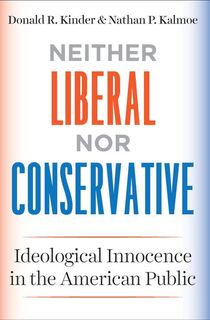
Neither Liberal nor Conservative
In 1964, Phillip Converse published a famous essay in which he argued that most Americans were “innocent of ideology”—that is to say, they did not really identify as liberals or conservatives (or anything else like that) and instead voted based on non-ideological criteria.
Is that still the case? In this new book, authors Donald R. Kinder and Nathan P. Kalmoe explore whether average Americans are still “ideologically innocent,” and how that factors into our increasingly divided political field.
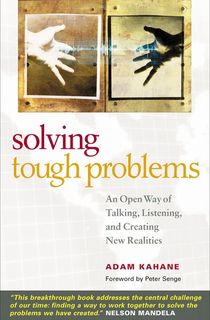
Solving Tough Problems
“This breakthrough book addresses the central challenge of our time: finding a way to work together to solve the problems we have created.”
That’s what Nelson Mandela said about Adam Kahane’s book, based on his own experiences navigating some of the toughest problems the modern world has ever faced, from apartheid to Northern Ireland and beyond.
The result is “thought-provoking […] discourse on handling difficult situations gracefully, productively and calmly” (Publishers Weekly).
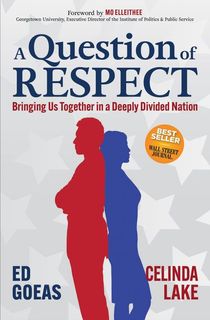
A Question of RESPECT
In this Wall Street Journal bestseller, Republican Ed Goeas and Democrat Celinda Lake explore the contentious battlefield that modern politics has become, and how they navigated those uneven fields in their own careers and in the course of writing this book.
“It’s not a solution,” writes retired General Stan McChrystal,” that’s up to us, but it’s an invaluable roadmap that each of us should carry,” that may just help us to find common ground in a world that seems determined to tear us apart.
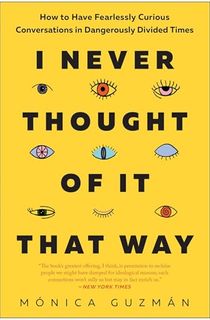
I Never Thought of It That Way
“Anyone who sincerely wants to bridge the gaps in understanding will appreciate this book,” raves Manhattan Book Review about this bestselling volume that is “assigned reading for fractured families aspiring to a harmonious Thanksgiving dinner” (New York Times).
Journalist Monica Guzman uses the lessons from her own family to explore how our innate curiosity may be our best tool for bridging political divides and understanding one another better.
Featured image: Pexels / Canva
